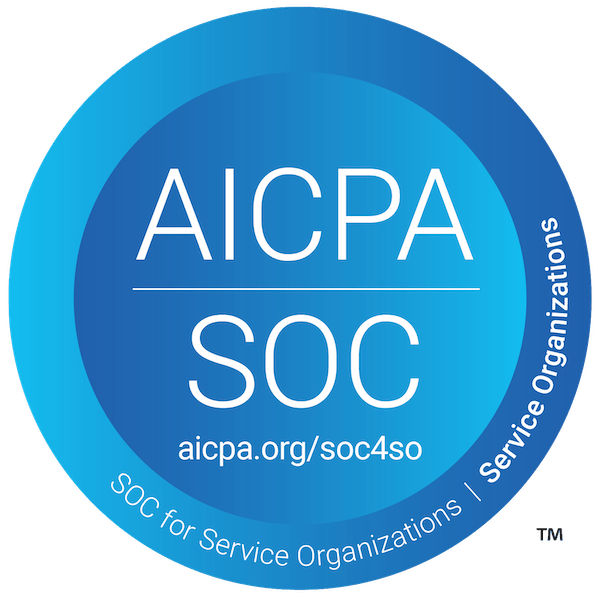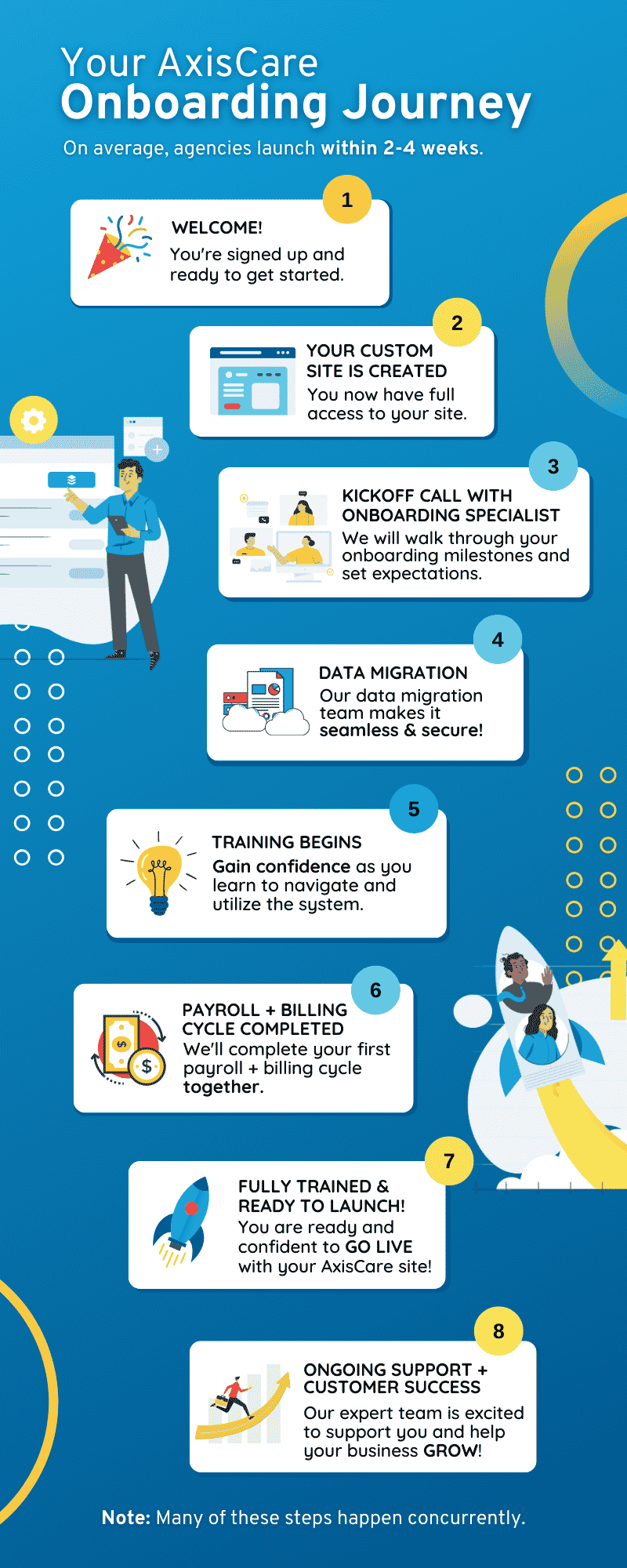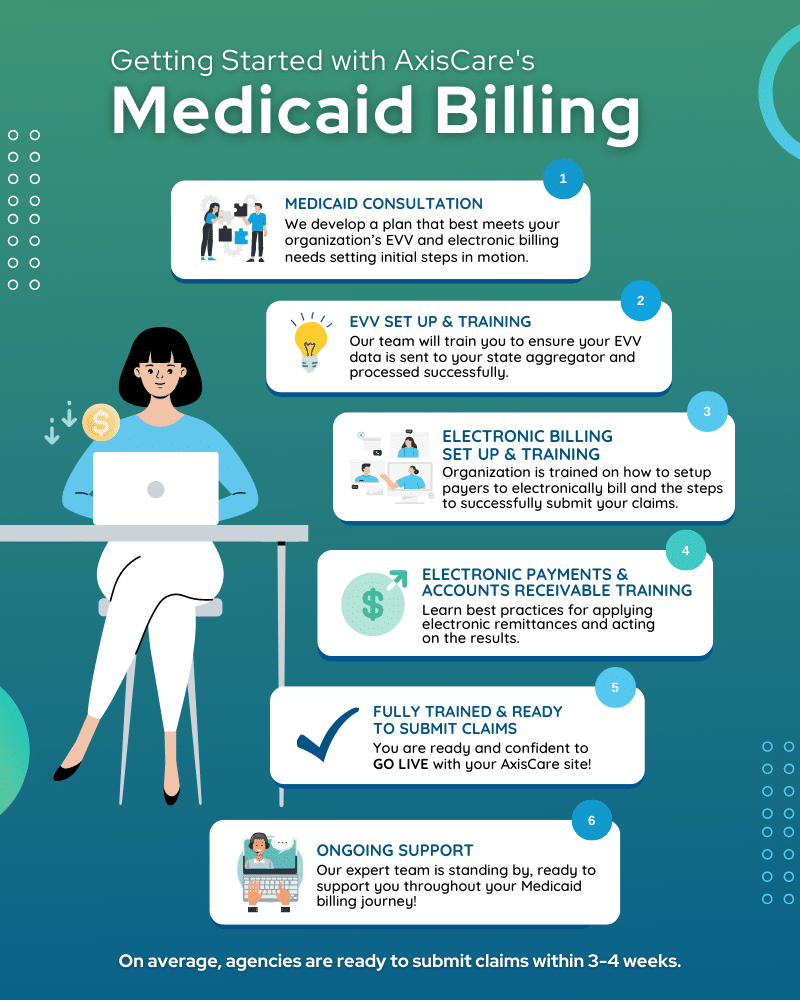When considering new products, potential clients turn to people and sources they know and trust. Referrals from friends, acquaintances, and even online forums inform tough decisions and lend a hand in the decision-making process.
In search of a compassionate and experienced caregiver, these recommendations become all the more invaluable.
One way a company can best garner more clients is to harness and promote client referrals. Knowing how to utilize happy clients creates exponential brand momentum.
Not only are referrals free, but they are often more effective than standard advertising. By their very nature, they are authentic, transparent, and trustworthy.
As a business designed to help others, home care has an enormous capacity for client satisfaction. Hence why referrals carry more weight than your run of the mill restaurant or clothier recommendation. A capable caregiver isn’t just a bonus—it’s crucial to a client’s happiness and well-being.
Here are five ways to refine and increase your home care agency’s referrals to propel your business and promote your brand:
1. Train Caregivers to Scout Loyal Clients
Your caregivers cultivate the client care relationships your agency promotes. With their in-person visits, they interact and communicate with clients the most, providing many opportunities to ask for referrals.
When training caregivers, encourage them to garner feedback and identify referral potential. Some clients may be forthcoming about their satisfaction, while others may need prompting.
You can also request client feedback via frequent online/written surveys. With this data, you and your caregivers can seamlessly track happy clients and approach them as potential brand promoters.

2. Maximize the Timing of Your Referral Requests
There is a time and a place to ask for referrals, and this can present a challenge.
According to software company Referral Rock, clients are ideally propositioned for referrals:
- Immediately after receiving a product (or care)
- After successful troubleshooting or customer support
- After they’ve voluntarily offered complimentary feedback
- After they’ve given high praise on a survey
The idea is to catch clients when they’re excited about your agency and have more desire to spread the word.
Contrarily, bad timing can be ineffective and even detrimental. Referral requests may come across as needy or an annoyance when propositioned at an inconvenient time and without careful nuance.
By training caregivers and agency staff to recognize the best timing and seize each moment with a clear, tactical approach, you’ll be sure to receive valuable feedback and naturally attract more clients.
3. Expand a Client’s Referral Options
Not all satisfied clients will automatically refer you to others. It may not even cross their minds. That’s why it’s important to reach out directly and make referrals simple on their end.
To facilitate your client’s willingness to recommend your agency present multiple options. These can include word-of-mouth recommendations, online reviews/testimonials, emails, and social media mentions. Many free referral templates already exist online and can be offered in client interactions.
The basic concept is that with more methods to choose from, clients are more apt to help.
4. Consider Referral Programs and Discounts
As simple as it is, it takes time and energy to write a referral. Similarly, it’s not always easy to pivot to the topic of home care in the middle of an unrelated conversation with an acquaintance.
That’s why referral programs with built-in rewards help incentivize clients to prioritize and accommodate referrals in their interactions. Even genuinely happy customers need motivation to shout your brand name from the rooftops.
Referral software can help agencies track the success of referrals electronically. They can automatically compensate clients that have earned rewards. Many successful referral programs even allow clients to select their rewards. Home care clients, for instance, could choose between a free client visit or an additional product or service.
Rewards are not only a way to incentivize referrals, but also a gracious way to say thank you for a client’s generosity. This is an important final step in any referral request.
5. Focus, Last and Not Least, on Excellent Service
Finding the right caregiver for a loved one is a crucial, personal task.
When home care agencies deliver the exceptional care that clients and their families seek, the results speak for themselves.
Before you can ask for referrals—or even expect good feedback—assess your service commitment. Problem-solve negative feedback, focus on retaining your best caregivers, and streamline all client and billing interactions.
You can’t ask for anyone to recommend what you don’t excel in, so dedicating your energy to best business practices goes a long way.
Before long, many referrals will naturally occur. The rest will come with your curated time and attention.











